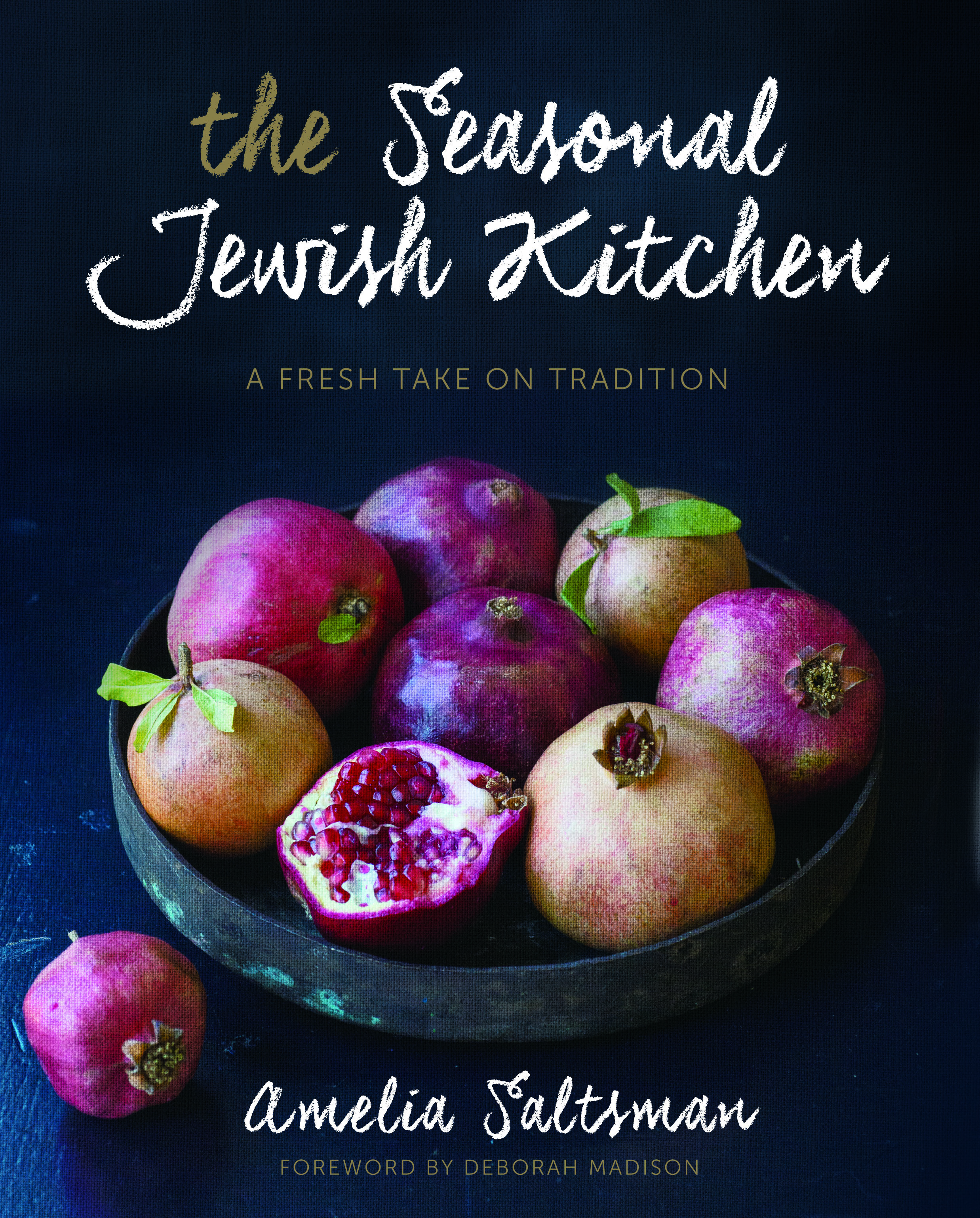
THE SEASONAL JEWISH KITCHEN: A Fresh Take on Tradition
Amelia Saltsman Staci Valentine
Sterling
August 18, 2015
$29.95/Hardcover
ISBN-13: 978-1454914365
Amelia Saltsman Staci Valentine
Sterling
August 18, 2015
$29.95/Hardcover
ISBN-13: 978-1454914365
Amelia Saltsman is the daughter of a Romanian mother and an Iraqi father who met in the Israeli army and immigrated to Los Angeles, where she was born and raised. Her cooking reflects her eclectic background, with the diverse flavors and cultural touchstones that have made her first book, The Santa Monica Farmers’ Market Cookbook, a beloved classic. Amelia’s name is synonymous with intuitive, seasonal cooking, and she is regularly sought out for her expertise by publications such as Bon Appétit, Cooking Light, Vegetarian Times, U.S. Airways, Fit Pregnancy, The Jewish Journal, and Los Angeles Times. She is a frequent guest on KCRW’s “Good Food with Evan Kleiman” and a longtime advocate for small family farms. Amelia lives with her family in Santa Monica. Visit her at www.ameliasaltsman.com.
Here, at last, is a fresh, new way to think about Jewish food. In THE SEASONAL JEWISH KITCHEN, Amelia Saltsman takes us far beyond deli meats and chicken soup to explore a universally appealing world of flavors ideal for modern meals. She traces the delicious thread of Jewish cooking, from its ancient roots to today’s focus on seasonality, sustainability, and Middle Eastern fare, and reveals what happens when these elements are mixed together.
Amelia draws on her own rich food history to bring you a warmly personal cookbook filled with her trademark seasonal spins on beloved favorites, classics ready to be rediscovered, and much more, including such recipes as:
Inspired by the Jewish lunar calendar, Amelia divides the book into six micro-seasons that highlight the deep connection of Jewish traditions to the year’s cycles. It’s no coincidence that holiday foods, including ancient ones, are season-based—the spring herbs of Passover; the winter roots, grains, dried fruits, and nuts of Tu b’Shvat, the Jewish Arbor Day—or that the agricultural and social justice lessons of the Bible are the foundation of today’s sustainability and gleaning projects.
Whether you’re Jewish or not, observant or not, Ashkenazic or Sephardic, this year long culinary journey through the Diaspora will have you saying, as Deborah Madison does in the foreword “This is Jewish food? Who knew?”